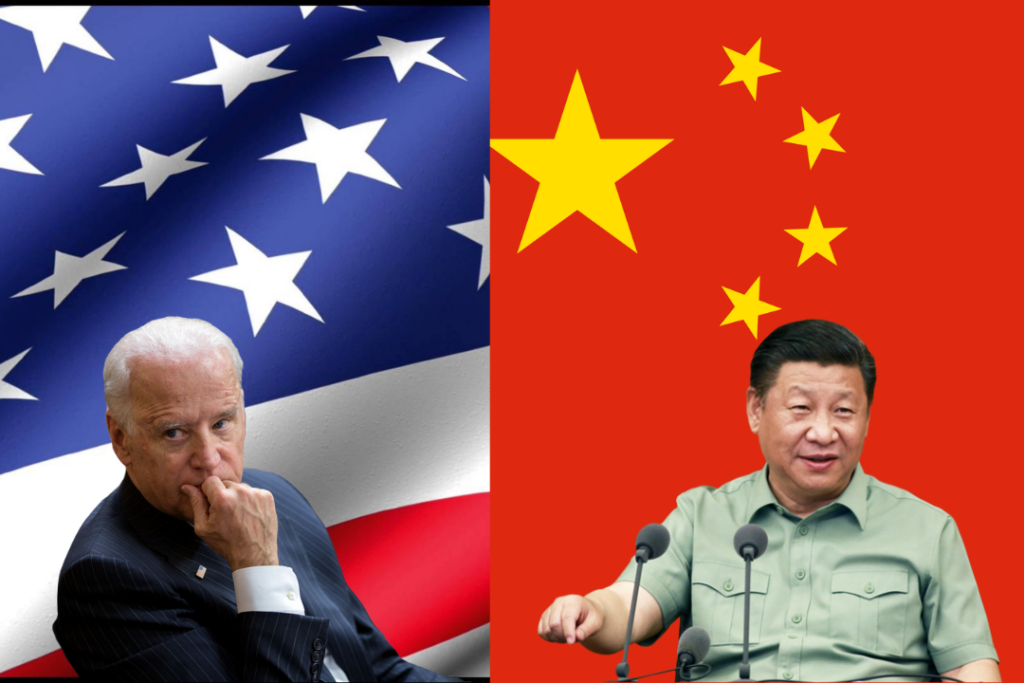Biden Expects To Speak With China’s President Xi By The End Of July 2022
As the US considers whether removing certain tariffs on Chinese goods might help in containing the spiralling inflation crises, President Joe Biden says he anticipates speaking with Chinese leader Xi Jinping “within the next 10 days.”
The two largest economies’ already strained ties have become worse as a result of China’s failure to denounce Russia’s invasion of Ukraine.
Following a trip to Massachusetts to pitch his climate programme, Biden told reporters on Wednesday, “I think I’ll be talking to President Xi within the next 10 days.” “I expect to.”
An official of the administration downplayed the significance of tariffs in the conversation, which the official referred to as a potential call. They said that the discussion would not be related to the tariff process and would instead focus on a variety of bilateral, regional, and global problems. Since the conversation hasn’t been scheduled yet, the official requested anonymity.
The US government has described China as its main strategic rival but believes it is important to keep President Xi engaged in order to keep the relationship stable.
When asked what he would say to President Xi about the tariffs, Biden resisted answering, only saying, “I’ll tell him to have a nice day.
The discussions take place in the midst of a number of disagreements between the nations, including the ones over tariffs, Taiwan, and China’s military and trade ties with Russia.
After Biden’s statements, a representative for the White House National Security Council said that there is no need to announce or confirm anything at this point.
At a routine news conference in Beijing on Thursday, Wang Wenbin, a spokesman for the Chinese Foreign Ministry, said that he had no information to provide about any calls between the two Presidents.
The President was also questioned on rumours that House Speaker Nancy Pelosi, a prominent member of his party, could visit Taiwan. Biden said, “The military thinks it’s not a good idea right now, but I don’t know what the status of it is.”
It is not confirmed whether Ms Pelosi’s trip will go ahead due to potential security concerns, with the State Department describing it as “hypothetical”.
China said they would respond with “forceful measures” if Ms Pelosi does visit the island, which Beijing claims as Chinese territory.
It added that such a trip would “seriously undermine China’s sovereignty and territorial integrity”.
It is not confirmed whether Ms Pelosi’s trip will go ahead due to potential security concerns, with the State Department describing it as “hypothetical”.
The Biden administration has previously said its commitment to Taiwan’s security is “rock solid”.
China has not ruled out force to take control of Taiwan, which established its own nationalist government in 1948.
It has been anticipated that Biden would soon decide whether or not to remove any of former President Donald Trump’s tariffs in China.
Officials have discussed in meetings with Biden’s economic team over the last several months whether eliminating the levies would help the US combat record inflation or expose Biden to criticism from Republicans and labour unions. According to a person involved with the discussions, the administration is worried that broad-based tariff reductions won’t result in the savings being passed on to consumers.
Trump imposed tariffs on more than $300 billion in Chinese imports. However, the Biden administration is feverishly attempting to slow down the rapidly increasing US prices before the midterm elections in November.
After an investigation revealed China had stolen intellectual property from American companies and coerced them to surrender technology, Trump invoked section 301 of the Trade Act of 1974 to slap China with tariffs beginning in July 2018.
The tariffs applied to a variety of products, including consumer items like clothing and furniture as well as industrial inputs like chemicals and microchips. Senior government officials have said that lowering tariffs on household goods might help reduce consumer inflation, which increased at the quickest rate since 1981 in June from a year earlier despite there being no specific indication of which levies may be lifted.
Still, ending tariffs on merchandise like bicycles and clothing won’t help Americans where inflation hurts most – food, fuel, and housing.
online sources: express.co.uk, finance.yahoo.com All opinions and views expressed or suggested by the Digital Zeitgeist are not necessarily the same opinions and views held by or suggested by GPM-Invest plus any and all partners, affiliates, parties, or third parties of GPM-Invest. Any type of media distributed by GPM-Invest IS NOT financial advice. Please seek advice from a professional financial advisor

